Telling the truth but with a twist
Extracts from George Yeo’s Comment: When the honour of the family is at stake.
1. It was a sad day, that morning at the United Nations, when the Association of Southeast Asian Nations (Asean) foreign ministers confronted the Myanmar foreign minister over the crackdown on demonstrators in Yangon. Later Asean issued a statement expressing its horror and anger.
2. We had just received reports of automatic weapons being used.
3. The Thai foreign minister said to me with sadness that the killing of Buddhist monks was opprobrious.
4. We had stopped defending Myanmar internationally because it became no longer credible. But we refrained from publicly castigating its government. This time, we had no choice. The honour of the family was at stake, and the people of Myanmar would not forgive us if we kept silent.
5. When Western countries cheered us for speaking out, it worried us.
6. Strident calls to bring down the regime showed a lack of understanding of the problem. It cannot be assumed that out of the ashes, a new resplendent Myanmar will rise.
7. That the old way persisted in by the military government cannot work is clear.
8. Myanmar army played a major role in the founding of the state.
9. It was opposition leader Aung San Suu Kyi’s father, Aung San, who founded that army. He remains a national icon and part of his prestige has passed on to his daughter. Ironically, the institution that her father established became her tormentor.
10. After longtime ruler Ne Win stepped down, the old leader would visit Singapore for medical treatment. Sometimes, he would meet former prime ministers Lee Kuan Yew and Goh Chok Tong. Whenever they discussed Aung San Suu Kyi, Ne Win always referred to her as “my leader’s daughter”, never in a pejorative way.
11. The military government has been trying to marginalise her and the NLD without success. The military leaders know she retains a certain moral authority because of her father and her landslide victory in the 1990 elections. The recent demonstrations, especially the large-scale involvement of Buddhist monks, have strengthened her hand.
12. The military government has to accord her respect. She in turn knows that national reconciliation must involve the military.
13. Attempts by the government to intimidate the population can only succeed in the short term. However, if either side takes brinksmanship too far, the result will be a tragedy for the people of Myanmar.
14. That the military leaders allowed Ibrahim Gambari access to Aung San Suu Kyi was a sign that they wanted to negotiate, albeit on their terms.
15. That she asked him to continue playing that role showed that she, too, is prepared to negotiate, provided the military leaders are serious.
16. The negotiation will be tough and protracted, but it is our best hope for the country. If Gambari fails, the future will be bleak.
17. The alternative cannot but be violent. Many ethnic groups in
Myanmar resent majority Burman rule. While their peace agreement with the Yangon government holds, a number of these groups are and can return to insurgency. Without the army playing a major role in future solution, Myanmar cannot hold together.
18. Myanmar is a buffer state between China and India. If the country dissolves into civil war, both these giant neighbours will be dragged in willy-nilly. For this reason, keeping Myanmar in the Asean family is in everyone’s best interest, including the West’s.
–Bangkok Post
(Note: As George Yeo is the foreign minister of Singapore, we all Burmese know what he actually means. Keeping Myanmar in the Asean family is for his Singapore’s best interest.)
Filed under: ASEAN, Burma, Burmese, Dialogue, English Article, Myanmar, Myanmar Military, Politics, reconciliation, SPDC, UN, UNSC | Tagged: ASEAN, Burma, Burmese History, Burmese Opposition, Daw Aung San Suu Kyi, Dictators, Ethnic Minorities, Military Junta, Myanmar, NLD, Racial Discrimination, Singapore, SPDC |






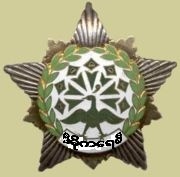

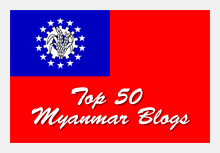
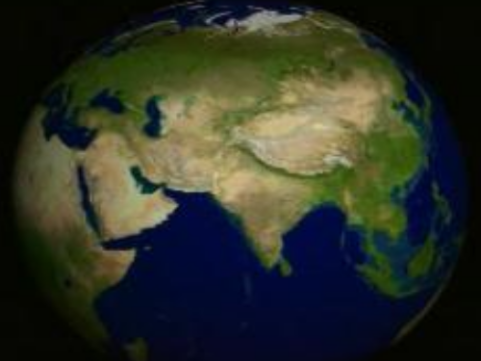

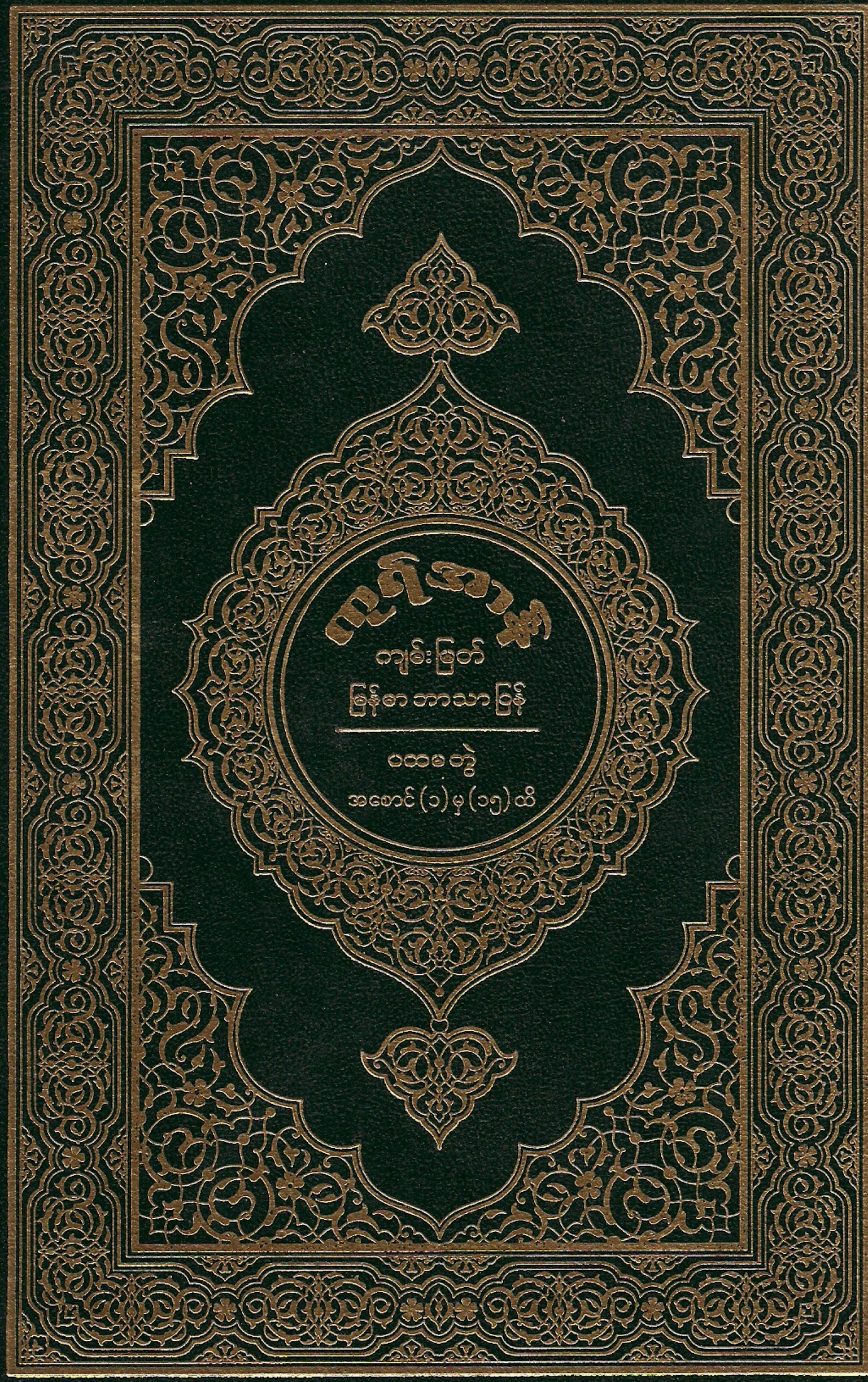
+(Small).jpg)
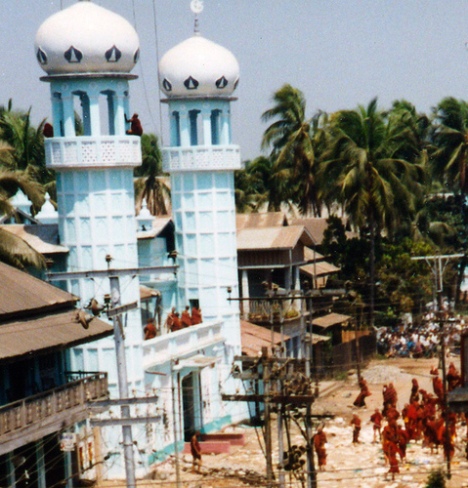

Singapore a loyal friend of Burma
Q Ali
I wish to draw readers’ attention to Singapore’s relationship with the brutal Burmese regime.
Despite the pariah status of the military junta controlled country as a flagrant violator of human rights and being the engine room of the notorious opium Golden Triangle, Singapore has been one of its key trading partners.
For more than a decade, Singapore has shrugged off evidence that some of its business has gone directly to Burma’s drug kingpins, specifically the infamous heroin trafficker Lo Hsing Han.
In 1997, former US Assistant Secretary of State for the Bureau of International Narcotics and Law Enforcement Affairs, Robert Gelbard, said: ‘Since 1988 … over half (of the US$1 billion) investment from Singapore have been tied to the family of the narco-trafficer Lo Hsing Han’.
In 1992, Lo founded one of Burma’s largest conglomerates, the Asia World Company which allegedly acts as an upmarket front for money-laundering. Lo’s son is married to a Singaporean who runs three ‘overseas branches’ of the conglomerate in Singapore itself.
In 1996, it emerged that the Singapore Government Investment Corporation had co-invested with Lo in the Traders and Shangri-La Hotels in Rangoon through a 21.5% stake in the US$39 million Myanmar Fund.
Many Singaporean firms are involved in the Asia World Group and the $S1 billion-plus a year that the republic pours into Burma in private investments. The contradiction of Singapore executing those caught with heroin while doing business with drug barons is not lost on many people.
What credibility will Asean have when persons like Singapore’s Foreign Minister George Yeo talk about ‘firm action’ to be taken against Burma?
Read
Share This
Posted in BD Blog News, BD EXTRA, BLOGGING | 2 Comments
2 Responses to “Singapore a loyal friend of Burma”
edit this on 12 Oct 2007 at 1:36 pm1Dr San Oo Aung
According to the International Trade Union Confederation General Secretary Guy Ryder, “no company can claim to have clean hands if it is doing business in or with Burma, since the Generals take their cut out of every deal.” So Singapore government and Singapore companies are getting dirty money and Singapore banks are laundrying money of the illegal Junta Generals. Please stop denying the PM of Singapore. The whole orld know this.
edit this on 12 Oct 2007 at 3:46 pm2Singapore » Blog Archives » Singapore a loyal friend of Burma
[…] Singapore a loyal friend of BurmaDespite the pariah status of the military junta controlled country as a flagrant violator of human rights and being the engine room of the notorious opium Golden Triangle, Singapore has been one of its key trading partners. … Posted in Singapore | Trackback | del.icio.us | Top Of Page […]
Singapore and Burma:
Such Good Friends
Extracts from: Eric Ellis 10 October 2007
The Singapore city-state is a crucial ally for the junta’s brutal generals.
Singapore Government business-technocrats are monitoring the brutality underway in Rangoon. And, were they so inclined, their influence could go a long way to limiting the misery being inflicted on Burma’s 54 million people. Collectively known as “Singapore Inc,” they tend to gather around the $150 billion state-owned investment house Temasek Holdings, controlled by a member of Singapore’s long-ruling Lee family, Ho Ching, the wife of Prime Minister Lee Hsien Loong. Singapore companies have been some of the biggest investors in and supporters of Burma’s military junta, while its government, in the rare times it is asked, suggests a softly-softly diplomatic approach toward the junta. Tiny Singapore ranks alongside China and Thailand as
Burma’s biggest trading partners. When it comes to Burma,
Singapore pockets the high morals it likes to wave at the West elsewhere. Singapore’s one-time head of foreign trade once said as his country was building links with Burma in the mid 1990’s; “while the other countries are ignoring it, it’s a good time for us to go in….you get better deals, and you’re more appreciated…
Singapore’s position is not to judge them and take a judgmental moral high ground.” But by providing Burma’s pariah junta much of the crucial materiel and equipment denied by Western sanctions, Singapore has helped keep the junta and its cronies afloat for 20 years, indeed since the last time the generals opened fire on the citizens they are supposed to protect. Withdraw that financial support from Singapore and others and Burma’s junta would be substantially weakened, perhaps even fail. But after two decades of profitable business with the trigger-happy generals, that’s about the last thing Singapore is likely to do. There’s too much money to be made. While the world’s attention — and outrage — was riveted on Rangoon in late September, Singapore was at pains to be seen as the region’s leading voice in condemning the junta. Chairing ASEAN, it articulated the grouping’s “revulsion” toward Burma at the United Nations. The quasi-official Straits Times loyally parroted the line while overlooking the intimate business links Singapore has cultivated there, the medical care and hyper-security junta leaders get from Singapore and the frequent state visits. Singapore’s spin was no better articulated internationally than by Tom Plate of the UCLA’s Asia-Pacific Media Network, a man regarded in Singapore as a particular favorite. In a column for CNN, Plate opined that (Foreign Minister George) Yeo “has few equals on the world diplomatic stage in the department of clear, concise and unmistakable language. Words like ‘appalled’ and we ‘demand’ are rarities in ASEAN-speak. Yeo used them — and a few other choice ones as well … Also working behind the scenes was Singapore’s prime minister Lee Hsien Loong. He was lobbying his often-timid counterparts among the ASEAN states not to wimp out at the very moment the eyes of the entire world were glued on messed-up Buddhist Burma in Southeast Asia. Nobody has ever said Singapore was dumb.” Perhaps, but no one ever said Singapore wasn’t pragmatic either, and nowhere did Plate link Singapore’s corporate endeavors in Burma to the current appalling mess. No sooner had the junta’s guns prevailed and world attention diverted,
Singapore retreated to its self-interested status quo of doing little beyond occasional diplomatic hand-wringing. While Malaysia stated the obvious – that ASEAN’s policy toward Rangoon had failed and capitals across the region summoned envoys, kept up pressure and allowed spontaneous popular protests outside Burma’s ASEAN embassies,
Singapore quietly balked. In New York, Singapore’s UN ambassador Vanu Gopala Menon told the Security Council that if sanctions were adopted against Burma, “we have to pause to consider dispassionately what the real impact of additional sanctions will be.” So much of Burma’s bucks start with Singapore. Hotels, airlines, military equipment and training, crowd control equipment and sophisticated monitoring devices for its secret police, Singapore is a crucial manager and supplier to the junta, and the economy it controls. It is impossible to spend any meaningful time in
Burma, and not make the junta richer, often via contracts with Singaporean suppliers to the tourism industry. Singapore’s hospitals also keep its leaders alive – 74 year-old junta strongman Than Shwe has been getting his intestinal cancer treated in a Singapore government hospital, in a ward heavily protected by Singaporean security.
Singapore’s boutiques keep junta wives and families cloaked in Armani, and its banks help launder their money. Much of Singapore’s activity in Burma has been documented by an analyst working in Australia’s Office of National Assessments, Canberra’s premier intelligence agency. Andrew Selth is recognized as one of the world’s leading authorities on the Burmese military. Now a research fellow at Queensland’s Griffith University, Selth has written extensively on how close Singapore is to the junta. Often writing as “William Ashton” in the authoritative Jane’s Intelligence Review, Selth has described in various articles how Singapore has sent the junta guns, rockets, armored personnel carriers and grenade launchers, some of it trans-shipped from stocks seized by Israel from Palestinians in southern Lebanon. Singaporean companies have provided computers and networking equipment for Burma’s defense ministry and army, while upgrading the junta’s ability to network with regional commanders, crucial when protests spread, as they did recently, nationwide causing major logistical headaches for the Tatmadaw, Burma’s military. “Singapore cares little about human rights, in particular the plight of the ethnic and religious minorities in Burma,” Selth writes. “Having developed one of the region’s most advanced armed forces and defense industrial support bases, Singapore is in a good position to offer Burma a number of inducements which other ASEAN countries would find hard to match.” Selth says Singapore also provided the equipment for a “cyber war center” to monitor dissident activity while training Burma’s secret police, whose sole job it seems is to ensure pro-democracy groups are crushed. Monitoring dissidents is an area where Singapore has particular expertise. “This centre is reported to be closely involved in the monitoring and recording of foreign and domestic telecommunications, including the satellite telephone conversations of Burmese opposition groups.” Selth writes. Singapore government companies, like leading arms supplier Singapore Technologies, dominate the communications and military sector in Singapore. Duly, Selth writes “it is highly unlikely that any of these arms shipments to Burma could have been made without the knowledge and support of the Singapore Government.” He notes that Singapore’s ambassadors to Burma have included a former senior Singapore Armed Forces officer, and a past director of Singapore’s defense-oriented Joint Intelligence Directorate. “It is curious that Singapore chose to assign someone with a military background to this new member of the Association of South East Asian Nations (ASEAN) and not one of its many capable professional diplomats.” He writes that after the 1988 crackdown, when the junta killed some 3,000 democracy protesters, “The first country to come to the regime’s rescue was in fact Singapore.” When I interviewed Singapore Technologies CEO Peter Seah at his office in Singapore, I inquired after the scale model of an armored personnel carrier made by his company that sat on his office table. He said ST sold the vehicles “only to allies.” Does that include Burma, I asked, given that Singapore helped sponsor the military regime’s entry into ASEAN? Seah was non-specific. “We only sell to allies and we make sure they are responsible.” He didn’t say how. For their part, ST and Temasek don’t respond to questions about their activities in
Burma. Singapore is so close to Burma than one of its diplomats there wrote a handbook for its businesspeople there. Matthew Sim’s “Myanmar on My Mind” is full of useful tips for doing business in Burma, including being realistic about corruption and lawbreakers, despite Singapore’s self-proclaimed clean image. “A little money goes a long way in greasing the wheels of productivity,” he writes. A chapter headed “Committing Manslaughter When Driving” describes the appropriate action if a Singaporean businessman accidentally kills a Burmese pedestrian. “Firstly, the international businessman could give the family of the deceased some money as compensation and dissuade them from pressing charges. Secondly, he could pay a Myanmar citizen to take the blame by declaring that he was the driver in the fatal accident. An international businessman should not make the mistake of trying to argue his case in a court of law when it comes to a fatal accident, even if he is in the right. He highly probably will spend time in jail regretting it. It is a sad and hard world. The facts of life can be ugly.” Sim describes Singapore’s usefulness to Burma. “Many successful Myanmar businessmen have opened shell companies” in Singapore “with little or no staff, used to keep funds overseas,” he notes. Sim says the companies are used to keep business deals outside the control of Burma’s central bank, enabling Singaporeans and others to do business with Burma in Singapore. He may be referring to junta cronies like Tay Za and the druglord Lo Hsing Han. Lo is an ethnic Chinese, from Burma’s traditionally Chinese-populated and opium-rich Kokang region in the country’s east, bordering China. Lo controls a massive heroin empire, and one of Burma’s biggest companies, Asia World, which the US Drug Enforcement Agency describes as a front for his drug-trafficking. Asia World controls toll roads, industrial parks and trading companies.
Singapore is the Lo family’s crucial window to the world, controlling a number of companies there. His son Steven, who has been denied a visa to the US because of his links to the drug trade, even married a Singaporean, Cecilia Ng, and the two reportedly control a Singapore-based trading house, Kokang Singapore Pte Ltd. The couple transit Singapore at will. A former US Assistant Secretary of State for the Bureau of International Narcotics and Law Enforcement Affairs, Robert Gelbard, has said that half of Singapore’s investments in Burma “have been tied to the family of narco-trafficker Lo Hsing Han.” Romantically-linked to a daughter of junta leader Than Shwe, Tay Za is also well known in Singapore. He had his fleet of Ferraris, Lexus’ and Mercedes shipped in from there. When on the island, he likes to stay at the Meritus Mandarin hotel on
Orchard Rd, close to the excellent Singapore hospitals favored by his senior military patrons in Burma. Tay Za was all over the Singapore media last year toasting the launch of his new airline, Air Bagan, with the head of Singapore’s aviation authority. Dissident groups say the trade-off for Tay Za’s government business contracts in Burma is to fund junta leaders’ medical trips to Singapore.
Read all in http://www.asiasentinel.com/index.php?option=com_content&task=view&id=754&Itemid=31
POST-SCRIPT: When an earlier version of the article above was published last week in the Sydney Morning Herald, Singapore’s High Commissioner to Canberra, Eddie Teo, a former boss of Singapore’s secret police, the ISD, wrote to the newspaper to deny that Singapore had provided Burma’s generals with succor and support. It may be that these remarks are re-visited when what Lee Kuan Yew describes as the “ticking time bomb” of the Burmese junta explodes, as many Burmese and foreign diplomats believe is likely.
Singapore (2007) Freedom Report
Population: 4,500,000Capital: Singapore
Political Rights Score: 5
Civil Liberties Score: 4
Status: Partly Free
Overview
The long rule of the People’s Action Party (PAP) was perpetuated by the results of general elections held in early May 2006. The party retained the same number of seats in Parliament, although the opposition made a stronger showing than in past elections. While peaceful, the balloting reflected the extent to which opposition candidates remain disadvantaged. Freedom of the press and freedom of association were further compromised by the extension of regulations on foreign media in August and the government’s heavy-handed approach to civil society activism surrounding World Bank and International Monetary Fund meetings in September.
——————————————————————————–
Singapore, located along major shipping routes in Southeast Asia, was established as a British trading center in 1819 and eventually became a separate British colony. Occupied by the Japanese during World War II, the city-state became self-governing in 1959, entered the Malaysian Federation in 1963, and gained full independence in 1965. Under Prime Minister Lee Kuan Yew, the ruling People’s Action Party (PAP) transformed the port city into a regional financial center and an exporter of high-technology goods. At the same time, Lee restricted individual freedoms and stunted political development.
In 1990, Lee handed power over to Goh Chok Tong, who largely continued his conservative policies and kept the PAP dominant in Parliament. In the 10 general elections that have been held since independence, the PAP has never won less than 95 percent of the parliamentary seats, and in recent years a large number of PAP candidates have run unopposed.
In the November 2001 elections, the PAP received 75 percent of the vote and captured 82 of Parliament’s 84 seats. Opposition parties contested only 29 seats. Veteran opposition politician J.?B. Jeyaretnam of the Workers’ Party was barred from running. Judicial authorities also declared him bankrupt for being a day late in paying an installment on a damages award to PAP politicians who had successfully sued him for defamation. In 2004, opposition politician Chee Soon Juan found himself in a similar predicament when he failed to fend off a defamation lawsuit brought against him by two leaders of the PAP.
Lee Hsien Loong, the son of Lee Kuan Yew, became Singapore’s prime minister in August 2004 as part of a planned transfer of power. His inauguration ended the 14-year tenure of Goh Chok Tong, but he has done little to change the country’s political climate. Although he made concerted efforts to appear more approachable, Lee is still regarded as being more conservative and potentially more authoritarian than his predecessor.
Read more